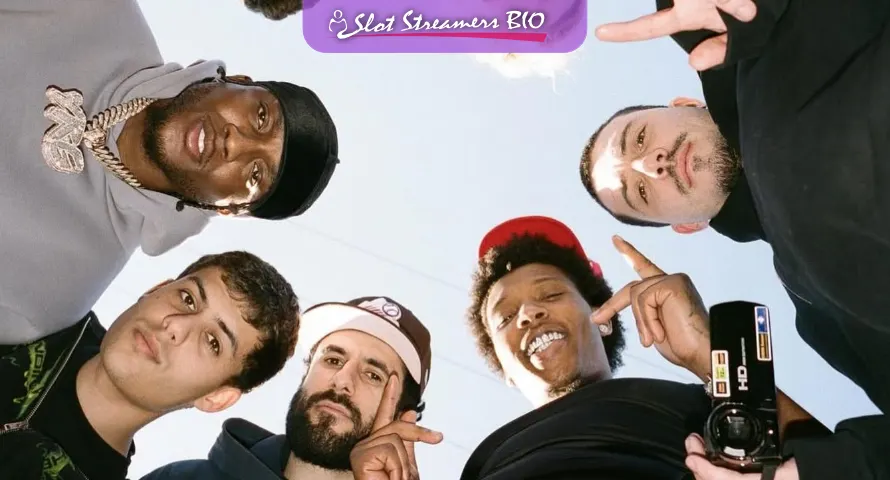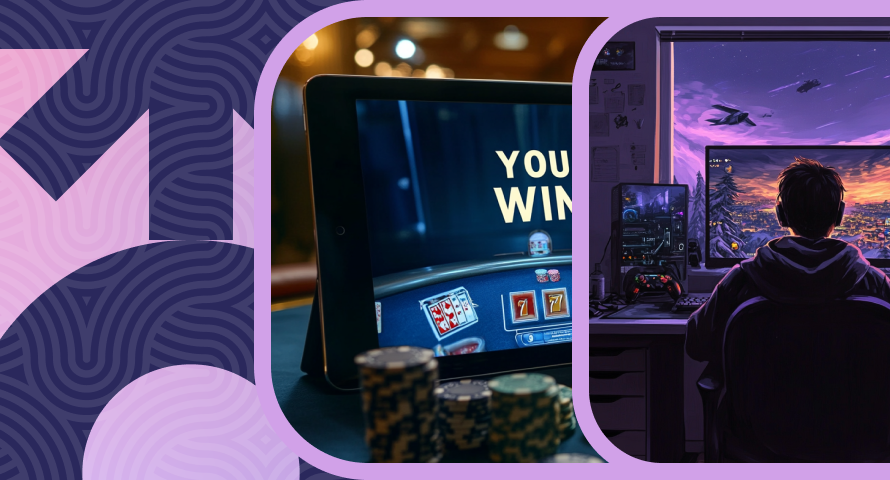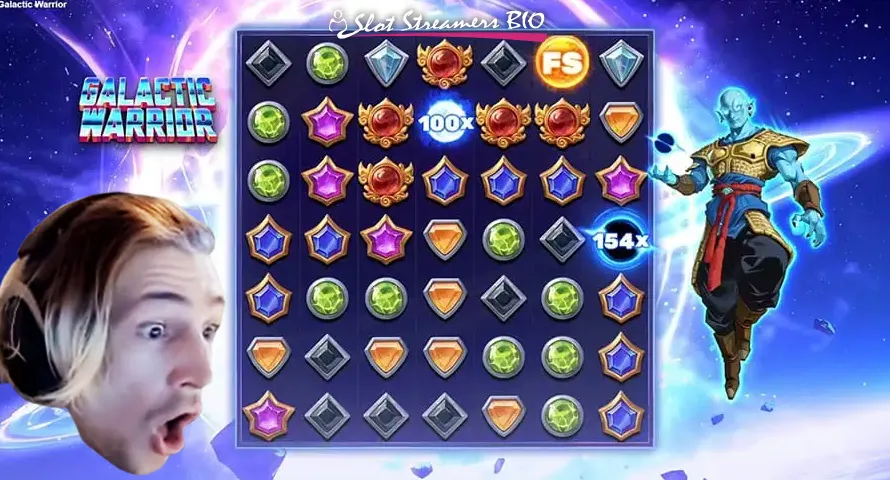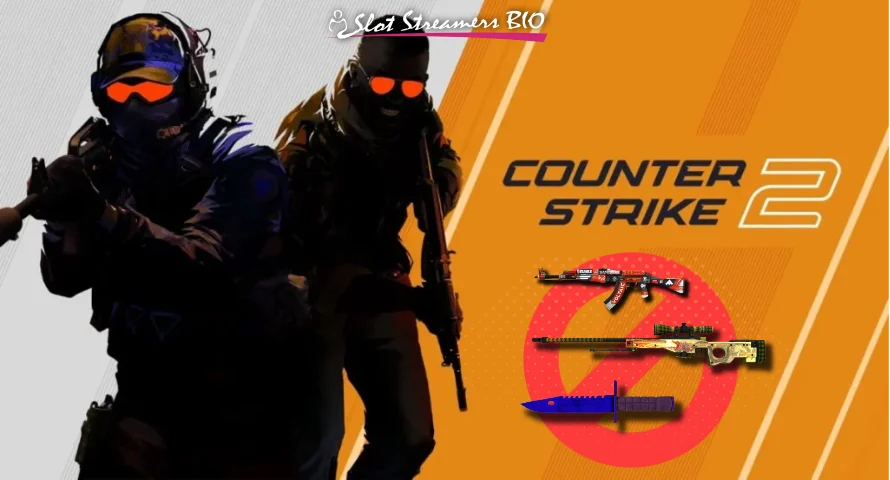Which Casino Platforms Are Banned on Twitch and Why
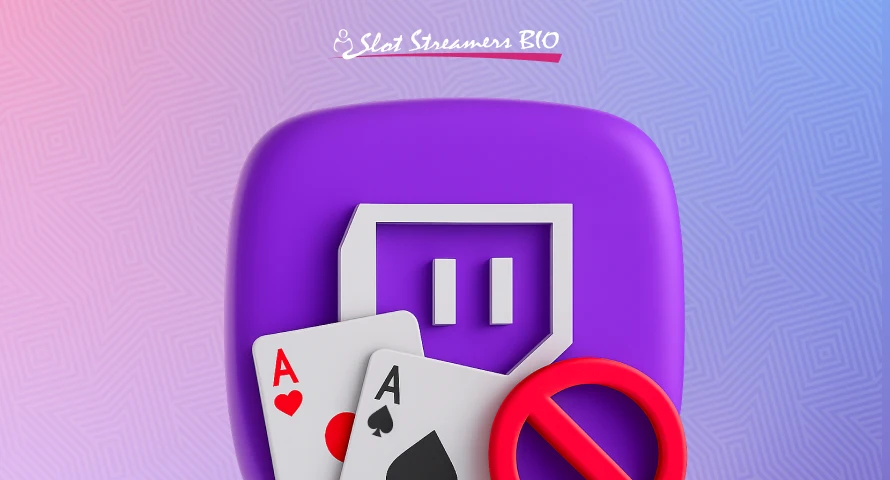
Twitch, the Amazon-owned live streaming platform, has ramped up its efforts to protect its audience from blacklisted casino sites. In fact, we have already seen big changes across the platform.
Twitch has always been at the top when it comes to listening to the community. As concerns about unregulated gambling, scams, and addiction gained traction, the company stepped in to block those gambling streams.
The decision brought some backlash from specific influencers and gambling enthusiasts, but Twitch held its ground, focusing on transparency and moderation to create a safe space for its community.
In this article, we’ll break down what’s changed, what content is now banned, and what further steps Twitch is planning to ensure a safer experience for everyone.
Changes in Twitch’s Gambling Policy
Twitch rolled out major restrictions on gambling streams in its October 18, 2022, update to platform rules. In this, all the slots, roulette, and dice games from casino platforms not regulated in the US were banned. It also banned casinos with operating licenses from other countries that do not have strong consumer protection laws.
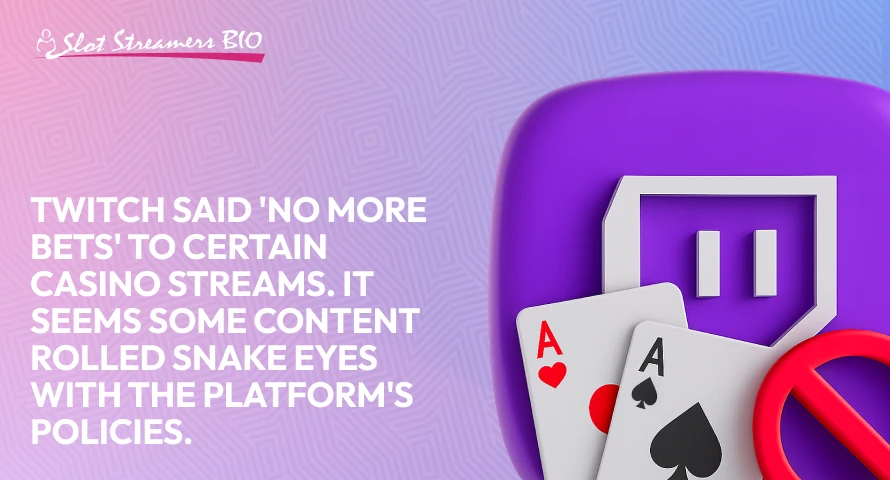
Timeline of Twitch Gambling Platform Bans
We’ve compiled a timeline showing how Twitch has changed its policy over the years, from “anything goes” to a more compliance approach:
- 2016: Casino streamers like CasinoDaddy and Roshtein started streaming slots on Twitch.
- 2018: Gambling streams became very popular, prompting Twitch to add a casino category. It later split the category into slots and tables. The monetization of gambling content has skyrocketed, raising worries about ethical limits.
- 2021: Twitch took its first serious step by banning links and referral codes to gambling sites.
- Sept-Oct 2022: Twitch announced a stricter policy: no more streaming slots, roulette, or dice games from unlicensed sites. Streams from sites like Stake.com, Rollbit.com, Duelbits.com, and Roobet.com were officially banned.
- 2023–2024: Twitch added Blaze and Gamdom to the banned list, sparking further controversy among viewers.
- 2025: Despite pressure from Kick (a streaming rival backed by Stake.com), Twitch continues with its no-tolerance policy on casinos without a license.
Reasons Behind Twitch Betting Ban
When people started raising serious concerns about safety and shady behavior, Twitch finally said “enough.” Here were the reasons behind taking this position:
- Many of the banned Twitch game sites weren’t properly licensed. This means no strict rules, no real consumer protections, and a higher risk of scams. Twitch didn’t want its users getting tricked by unfair games.
- High-stakes slot streams became super popular—and that was a problem. Viewers (especially the younger demographic) were watching big money wins without seeing the risks. Twitch was concerned that this could lead to gambling addictions.
- Fans and creators alike spoke out. Big names like Mizkif said gambling streams were sending the wrong message. The pressure built up until Twitch had to step in.
- Some streamers reportedly asked fans for money to continue gambling, which crossed a serious ethical line. Twitch didn’t want its platform tied to that kind of behavior.
- As a US-based company, Twitch faces legal and reputational risks if it allows the promotion of gambling sites that are illegal or unregulated in the U.S. or other major markets.
List of Banned Casino Platforms on Twitch
Twitch stopped allowing streams from certain online casino sites because of concerns about player safety, gambling addiction, and shady operations. Here are the gambling platforms you can’t stream on Twitch anymore:
- Stake
- Rollbit
- Duelbits
- Roobet
- Blaze
- Gamdom
Impact on Streamers and Gambling Viewership
The ban on casino streams by Twitch hit the gaming market hard. Gambling content dropped fast, forcing many streamers to either change their focus or leave the platform altogether. In fact, many speculate that Kick was created largely in response to the Twitch casino ban. Founded by Stake in December 2022, the more gambling-friendly site became a new home for many streamers who continued their usual streams there with fewer restrictions.
The ban also shifted viewer engagement. Gaming streams used to be highly interactive, with live chats, betting talk, and flashy giveaways. With the ban, the buzz has faded. This has affected viewership and followers on Twitch as people have moved to rival streaming services.
The good thing coming out of the ban is a shift towards a safer online experience. Studies show watching gambling streams can lead viewers to gamble themselves, especially when those streams link directly to casino sites. Twitch’s move was meant to break that cycle.
Financially, it was a big blow to gambling streamers. Many relied on sponsorships from casinos, and losing that income forced them to find new ways to keep their channels alive.
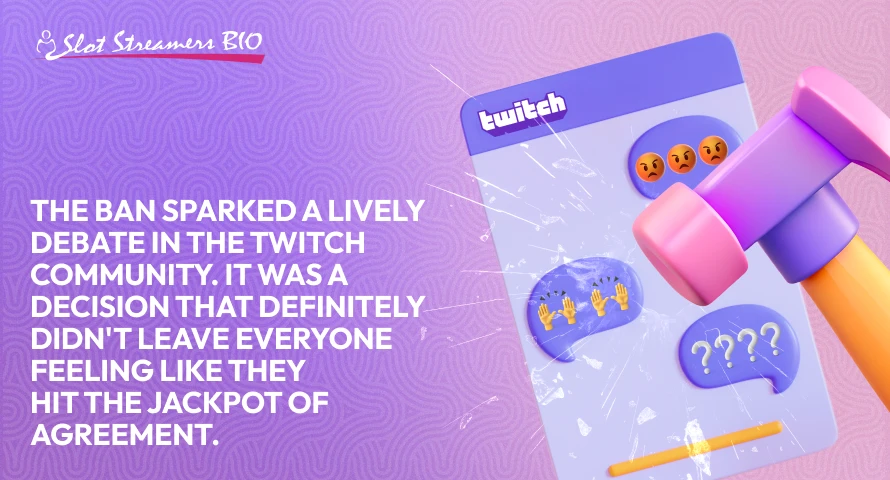
Community and Industry Reactions
Twitch’s stream bans sparked a mixed response; some people were all for it, while others weren’t so happy. Here’s how everyone reacted:
- Top streamers like Pokimane backed the move, saying gambling streams were pushing risky habits, especially to young viewers. A lot of fans agreed—it felt like a win for mental health and safer content online.
- Streamers like Trainwreck and Roshtein hit back, arguing Twitch should go after scammers, not the whole gambling scene. For them, the decision felt like unnecessary jurisdiction over their content choices.
- Casino sites like Stake.com didn’t stop streaming; they just moved. Many started working with Kick, a newer streaming platform that’s more gambling-friendly. Some gambling companies were upset too, as Twitch had been a big part of their marketing exposure.
Alternatives Still Allowed on Twitch
Even though Twitch bans gambling, not all gaming is off the table. Some types still appeal to streaming, as long as they play by the rules. Here’s what’s still allowed:
- Sports Betting: You can stream content about sports betting, talking odds, sharing tips, or watching the game, if it’s legal where you are.
- Fantasy Sports: Sites like DraftKings or FanDuel are fine. These games are more about skill than luck, so Twitch gives them a pass.
- Poker: Streaming poker is allowed. If it’s a high-stakes tournament coverage or just talking strategy, poker gets a thumbs-up because it’s seen as a skill game.
- Channel Points Predictions: This is Twitch’s built-in way to let viewers “bet” with fake points on stuff like, “Will the streamer win the next match?” No real money, just for fun and interaction.
Responsible Gambling
Understanding how to gamble on Twitch responsibly is key to maintaining control over your time and money. With streamers often playing high-stakes games and showing big wins, it’s easy to forget the losses viewers don’t see.
Twitch’s law enforcement measures aim to encourage safer content and shift the culture toward accountability and awareness.

